After M1, M1 Pro, M1 Max and M1 Ultra, Apple finally introduced M2, the second generation of Apple Silicon’s own processors.
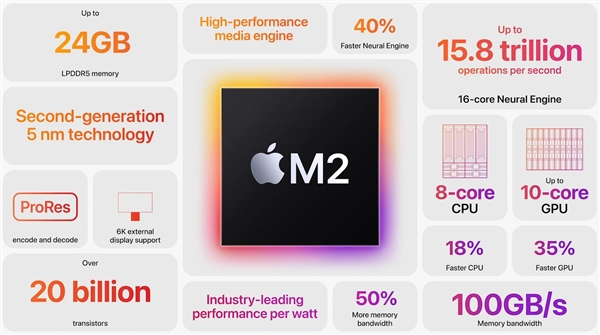
M2 is manufactured using an enhanced second-generation 5nm process and integrates over 20 billion transistors, an increase of 25% over M1.
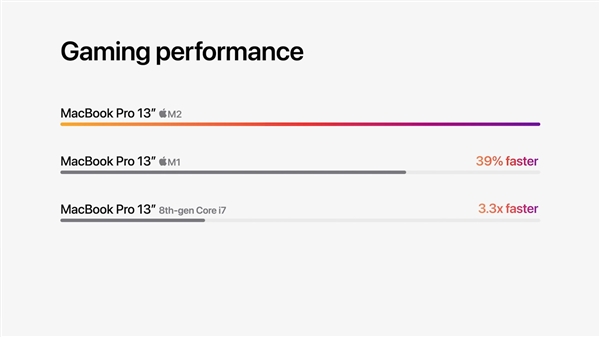
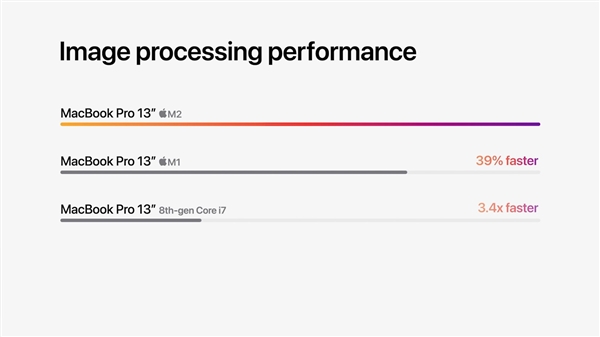
Integrated up to 24GB LPDDR5 unified memory, 128-bit width, bandwidth over 100GB/s, 50% more than M1.
Eight new architecture CPU cores, four large and four small, of which four performance cores are ultra-wide execution architectures, each with 192KB instruction cache, 128KB data cache, and 16MB shared cache (increased by one-third).
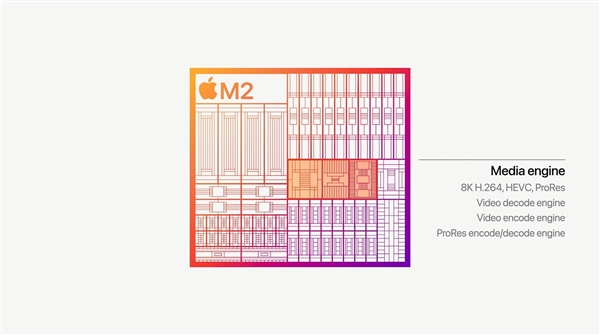
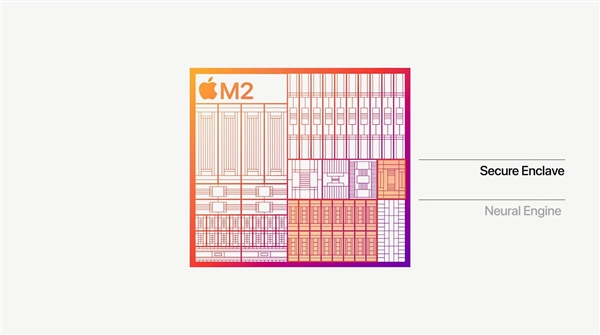
Four energy efficient cores, still wide execution architecture, 128KB instruction cache for each core, 64KB data cache, shared 4MB cache, unchanged.
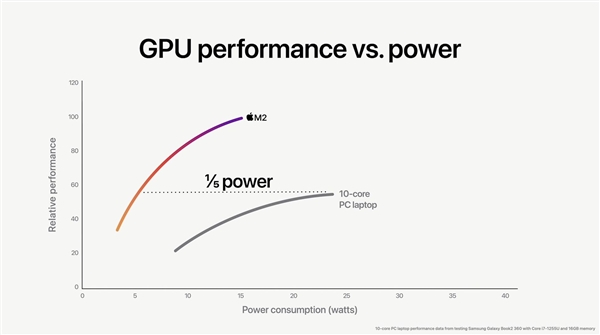
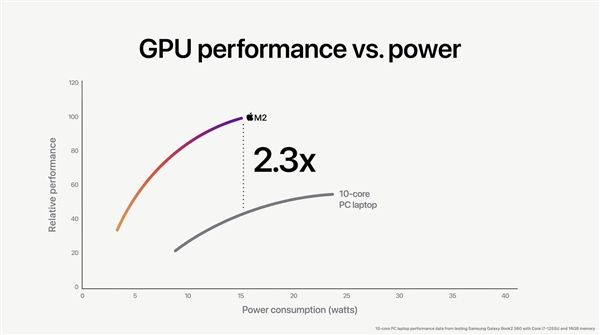
Compared with M1, the performance is improved by 18% under the same power consumption. Compared with the 10-core x86 notebook processor, the performance under the same power consumption (15W) is 90% better; Compared to a 12-core laptop processor, 25% power consumption translates into 87% performance.
10 GPU cores, two more than M1, with 25% performance improvement under the same power consumption and 35% performance improvement under the highest power consumption; Compared to the 10 core notebook processors, the same power consumption (15W) can achieve 2.3 times performance, only 35% of the power consumption can match the highest performance.
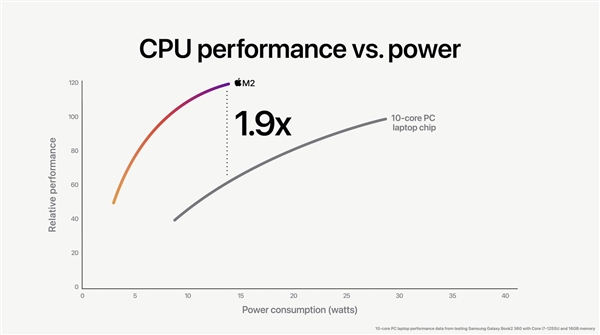

Of course, apple’s performance comparisons are pretty psychedelic, so just take a look, don’t take it too seriously.
Integrated with the new security isolation area and neural engine, it can perform 15.8 trillion operations per second, 40% more than M1.
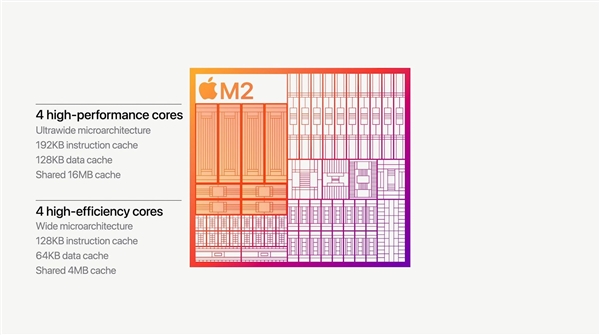
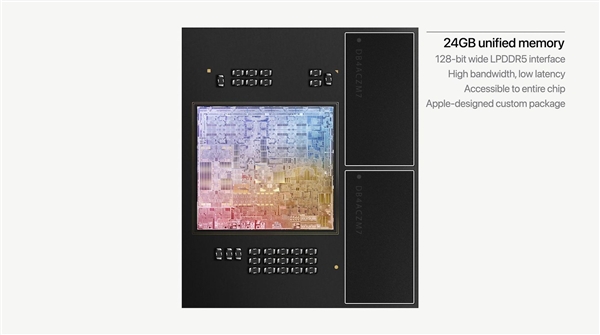
The integrated new-generation media processing engine supports 8K H.264/H.265 videos, can play multiple 4K/8K videos at the same time, supports ProRes video codec, and supports external 6K display.
Read Also: Aspire Flexus Q Kit Review: Comes With Huge 700mAh Battery (Coupon Inside)
On the new MacBook Pro, the M2 processor is 39 percent faster in image processing than the M1, 3.4 times faster than the 8th-generation I7, and 39 percent faster in games and 3.3 times faster than the 8th-generation i7.









